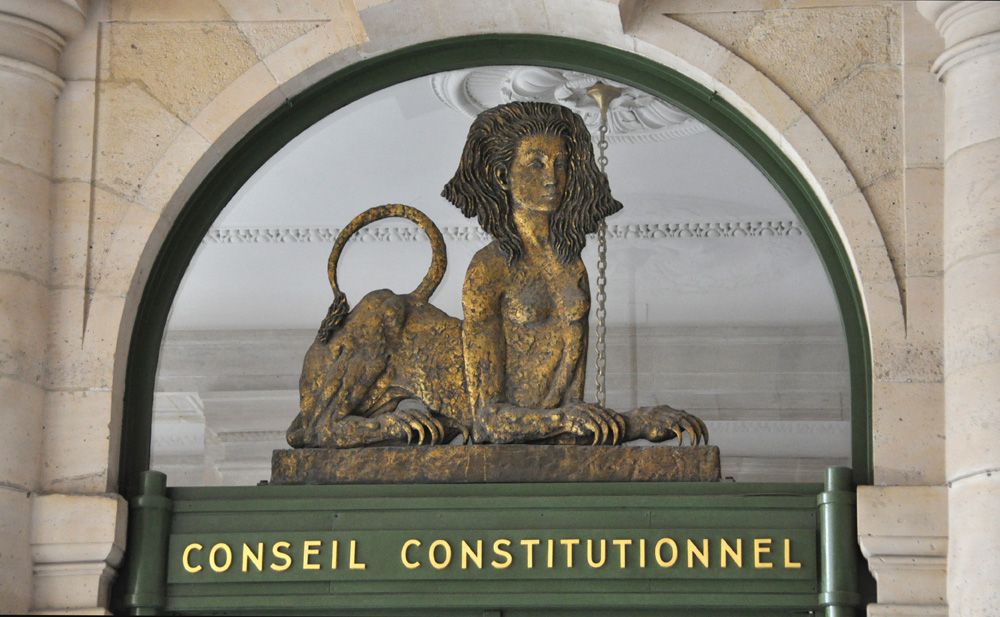Seized on 16th March with a Priority Question of Constitutionality (PQC), the Constitutional Council declared in compliance with the Constitution the law into force related to anonymous childbirth. In France, between 600 and 700 women would be concerned each year. Despite this decision of compliance, however the debate is far from being relieved: anonymous children claim the right to know their origins. The difficulty consists in finding the balance point between the right of the mother and that of the child.
Anonymous childbirth: the law in force
-
Anonymous childbirth in France
Anonymous childbirth is the “faculty for a woman to abandon its newborn baby to State services and the right to be anonymous for the society.” This possibility is “generally considered as a warranty against clandestine childbirth, savage child abandonment and infanticide.” (1) The law of 8th January 1993 (2) introduced this scheme in the Civil Code, inserting an article 341-1, according which: “during her delivery, the mother can ask that the secret of her admission and her identity are preserved.”
-
The access to personal origins: A necessary conciliation between the mother’s right and the child’s desire
The law of 22nd January 2002 (3) intended to conciliate the “absolute character of the mother’s right to give birth (…) without revealing her identity and the child’s desire to know her/his origins.” (4) The articles L. 222-6 and L. 147-6 of the code of social action and families, coming from this law, relate, respectively, to the right of any woman to give birth secretly and the procedure allowing a possible reversibility of this secret upon child request.
Indeed, subject to her express agreement, information related to the identity of the biological mother can be communicated to the child, if she/he asks for it to the National Council for access to personal origins (Cnaop). However, the mother has also the possibility to deny explicitly the secret of her identity is unveiled. In this case, the child will not be able to access to this information, even after the death of her/his mother.
-
A balance conform to the European Convention on Human Rights (ECHR)
This possibility, which allows the mother to preserve the secret of her identity, including after her death, has been contested in front of the European Court of Human Rights, which ruled with Odièvre judgment (5) on 13th February 2003. But, after having observed that the applicant had nonetheless accessed “identifying information about her mother (…) enabling her/him to establish any root of her/his history”, the Court concluded that the balance searched by the French legislation between the respect of the mother’s right and the child’s desire was not contrary to the article 8 of the CEDH, according which anyone has the right to the respect of her/his private life.
The preservation of the mother’s identity considered in compliance with the Constitution
-
The decision of the Constitutional Council
Mathieu Evers, born anonymously, challenged the articles L. 222-6 and L. 147-6 of the Social Action and Family code, about what they authorizes a woman to give birth without revealing her identity, and only allow lifting the secret with her agreement, or, in case of death, only if she did not express an intention to the contrary. According to him, these provisions breached her right to the respect of private life and to have a normal family life.
Following this request and by decision of the 16th March 2012, the Constitutional Council considered that the conciliation made by the French law between from one hand, “the respect effectively (…) of the will expressed by [the mother] of preserving the secret (…) of her identity”, and from another hand the objective consisting in “facilitating the knowledge by the child of her/his personal origins” was in compliance with the Constitution (6).
-
The preservation of the anonymity of the mother, a need?
This decision is part of the debate related to the necessity of preserving the anonymity of the mother, during an anonymous childbirth. In December 2011, MP Brigitte Barèges (UMP) introduced a bill to constraint women giving birth anonymously to disclose their identity in sealed envelope. The possibility was foreseen to reveal to the child the identity of her/his mother if she/he wanted it, at the time she/he reaches the age of majority. If it is possible to understand the distress of an anonymous child, seeking her/his origins, it is also necessary to consider that the preservation of the law as it is “is fundamental on sanitary level.” Indeed, the warranty of the anonymity enables women “to give birth securely”, and avoiding to endanger “both their life, and that of the baby” (7), while limiting infanticides, abortions and child abandonments. Also the legislation in force allows women to leave information related to their health, that of the father, to the origins of the child and the conditions of the birth (8). In practice, women taking the decision to give birth anonymously do it “in the best interest of the child”, and then “agree to leave non identifying information (9)“.
(1)http://www.conseil-constitutionnel.fr/conseilconstitutionnel/root/bank/download/2012248QPCccc_248qpc.pdf
(2) Law related to civil state, the family and the child rights and instituting the Family Court.
(3) Law related to the access to origins of adopted persons and wards of the State.
(4) http://www.conseil-constitutionnel.fr/conseil-constitutionnel/root/bank/download/2012248QPCccc_248qpc.pdf
(5) CEDH, 13th February 2003, Odièvre vs. France, n° 42326/98.
(6) CC, n° 2012-248 QPC, 16th May 2012, cons. 7 to 9.
(7) Jean-Louis Chaberneaud, neonatologist pediatrician, head of pediatrics SMUR to CHU of Clamart.
(8) Article L. 222-6 of the social action and family code.
(9) Estelle Kramer, midwife and coordinator of the International Association of Incest Victims (IAIV)

